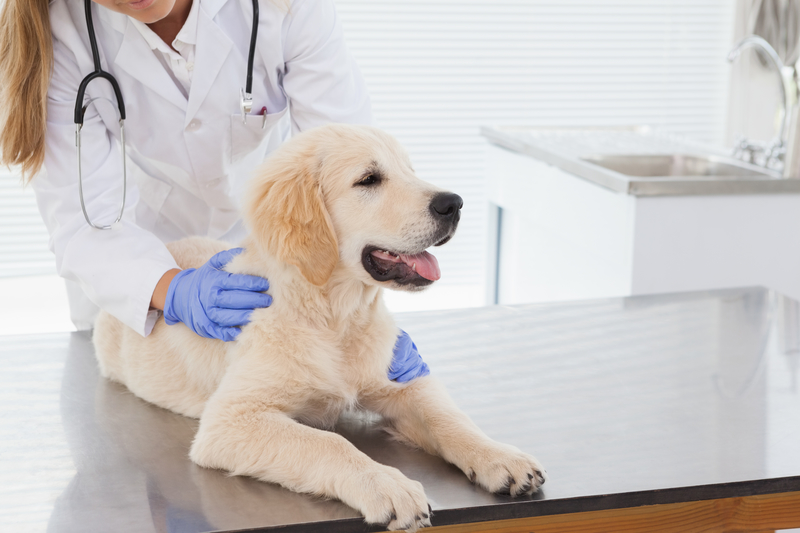Comprehensive Pet Health Check-ups: Ensuring Optimal Well-being for Beloved Companions

As responsible pet owners, ensuring the well-being of our beloved furry friends is of utmost importance. One of the fundamental ways to achieve this is through Comprehensive Pet Health Check-ups. These thorough examinations play a vital role in monitoring and maintaining a pet’s overall health and detecting potential issues at an early stage. In this blog, we will delve into the significance of comprehensive pet health check-ups, the essential components involved, and the long-term benefits they offer to our cherished companions.
The Importance of Comprehensive Pet Health Check-ups
Much like humans, pets can suffer from a range of health problems that may not be apparent to the untrained eye. Comprehensive pet health check-ups are a proactive approach to safeguarding a pet’s health and detecting any underlying conditions that may require attention. Regular check-ups help veterinarians establish a baseline for a pet’s health, making it easier to identify any changes or abnormalities in the future.
The Components of Comprehensive Pet Health Check-ups
1. Physical Examination
A thorough physical examination forms the cornerstone of a comprehensive pet health check-up. Veterinarians meticulously assess various aspects of the pet’s well-being, including:
- Vital Signs: Checking the pet’s temperature, heart rate, and respiratory rate.
- Eyes, Ears, and Nose: Examining for signs of infections, inflammation, or abnormalities.
- Mouth and Teeth: Evaluating dental health, gum condition, and any dental issues.
- Coat and Skin: Looking for signs of allergies, parasites, or skin conditions.
- Musculoskeletal System: Assessing mobility, joint health, and any signs of pain or discomfort.
2. Vaccinations and Preventive Treatments
During the health check-up, veterinarians ensure that pets are up-to-date with essential vaccinations and preventive treatments. These vaccinations protect pets from infectious diseases, while preventive treatments safeguard against parasites such as fleas, ticks, and worms.
3. Blood Tests and Laboratory Work
Blood tests and laboratory work are critical components of comprehensive pet health check-ups. These tests help assess the pet’s internal organ function, blood cell count, and detect any signs of underlying health conditions.
4. Urinalysis
Urinalysis is performed to evaluate kidney function and detect any urinary tract infections or abnormalities.
5. Weight Management
Maintaining a healthy weight is crucial for a pet’s overall well-being. During the check-up, veterinarians assess the pet’s body condition and provide guidance on weight management if necessary.
6. Behavioral Assessment
A pet’s behavior can be an indicator of their health and emotional well-being. Veterinarians take note of any behavioral changes or concerns during the check-up.
7. Nutrition and Dietary Recommendations
Proper nutrition is essential for a pet’s health and longevity. Veterinarians offer dietary recommendations based on the pet’s age, breed, and specific health needs.
8. Dental Evaluation
Dental health is often overlooked but is vital for a pet’s overall well-being. The check-up includes a dental evaluation to detect any dental issues and ensure good oral hygiene.
The Benefits of Comprehensive Pet Health Check-ups
1. Early Detection of Health Issues
Regular comprehensive pet health check-ups enable early detection of health issues. Identifying problems at an early stage allows for timely treatment and better management of health conditions.
2. Improved Quality of Life
Ensuring a pet’s optimal health contributes to an improved quality of life. Pets that receive regular check-ups are more likely to be happier, more active, and experience fewer health-related discomforts.
3. Long-term Cost Savings
Preventive healthcare through comprehensive check-ups can help avoid costly medical treatments in the future. Detecting and addressing health concerns early can prevent conditions from escalating into more serious and expensive problems.
4. Strengthened Bond with Pets
Regular visits to the veterinarian for health check-ups create a positive association for pets. It strengthens the bond between pets and their owners and builds trust between the pet and the veterinarian.
5. Tailored Health Management
Each pet is unique, and their health needs may vary. Comprehensive health check-ups allow veterinarians to develop personalized health management plans for each pet, catering to their specific requirements.
6. Peace of Mind for Pet Owners
Knowing that their beloved companions are in good health and receiving the best possible care provides pet owners with peace of mind.
Conclusion
Comprehensive pet health check-ups are a cornerstone of responsible pet ownership. Regular check-ups play a crucial role in safeguarding a pet’s well-being, ensuring early detection of health issues, and providing tailored care for their specific needs. As devoted pet owners, investing in the health and happiness of our beloved companions through comprehensive health check-ups is an essential aspect of responsible pet care. Let us cherish the joy and companionship that our pets bring into our lives and ensure they receive the best possible care through regular check-ups and preventive healthcare measures.
